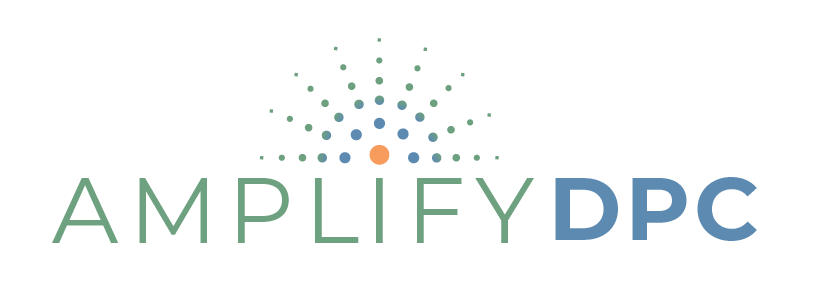Top Healthcare Marketing Solutions to Boost Your Practice
Healthcare marketing is a complex and ever-evolving field. With an array of marketing healthcare solutions available, it can be overwhelming to determine which ones will best suit your practice. Understanding the fundamentals and identifying the right strategies can significantly impact your patient acquisition and retention.
How to Choose the Right Healthcare Marketing Solutions for Your Practice
Choosing the right healthcare marketing solution for your practice is crucial for achieving long-term growth and patient satisfaction. Start by evaluating solutions that are tailored to the specific needs of your practice, whether it's Direct Primary Care (DPC), Direct Specialty Care (DSC), or another model. Look for tools that streamline patient acquisition, retention, and engagement, and ensure they offer easy integration with your existing systems. Consider the level of support provided, the ability to track and measure success, and how the solution aligns with your practice's unique goals. Ultimately, the right marketing solution will empower you to focus on delivering exceptional care while growing your patient base.
To effectively implement a healthcare marketing strategy, it's crucial to delve deeper into four key considerations.
1. Target Audience:
- Demographic Segmentation:
- Age: Identify specific age groups that align with your services.
- Gender: Tailor messaging to specific genders if applicable.
- Location: Focus on local or regional demographics to target specific geographic areas.
- Income Level: Consider the socioeconomic status of your ideal patient.
- Education Level: Assess the educational background of your target audience.
- Psychographic Segmentation:
- Lifestyle: Understand the lifestyle habits and preferences of your target patients.
- Interests: Identify hobbies, interests, and values that resonate with your audience.
- Attitudes and Beliefs: Consider their attitudes towards healthcare and specific health conditions.
- Behavioral Segmentation:
- Purchase Behavior: Analyze past purchasing habits and preferences.
- Brand Loyalty: Assess their loyalty to specific healthcare providers or brands.
- Usage Rate: Determine the frequency of healthcare service usage.
2. Practice Goals:
- Brand Awareness:
- Increase visibility and recognition of your practice.
- Build a strong brand identity and reputation.
- Position your practice as an expert in specific areas.
- Patient Acquisition:
- Attract new patients and grow your patient base.
- Generate qualified leads through targeted marketing campaigns.
- Convert leads into loyal patients.
- Patient Retention:
- Improve patient satisfaction and loyalty.
- Encourage repeat visits and referrals.
- Build long-term relationships with patients.
3. Budget:
- Realistic Budgeting:
- Allocate a budget that aligns with your practice's financial goals.
- Consider the cost of different marketing channels and strategies.
- Prioritize high-impact activities that deliver the best ROI.
- Flexible Budgeting:
- Be prepared to adjust your budget as needed based on performance metrics.
- Allocate additional funds to successful campaigns or reallocate underperforming ones.
- Long-Term Perspective:
- Invest in long-term marketing strategies that build brand equity and generate sustainable growth.
- Consider the ongoing costs of maintaining and optimizing marketing efforts.
4. Time Commitment:
- Time Assessment:
- Evaluate the time required to manage different marketing channels.
- Consider the time needed for content creation, social media engagement, email marketing, and other activities.
- Outsourcing Options:
- Outsource specific tasks or hire a marketing agency to alleviate the time burden.
- Consider the costs and benefits of outsourcing versus in-house marketing.
- Automation Tools:
- Utilize marketing automation tools to streamline processes and save time.
- Implement tools for email marketing, social media scheduling, and content management.
By carefully considering these factors, you can select the most effective healthcare marketing solutions to meet your practice's unique needs.
Why Healthcare Marketing Solutions Matter for Your Practice
Effective marketing is essential for practice growth and sustainability. By investing in healthcare marketing solutions, you can:
1. Enhance Brand Visibility:
- Targeted Advertising:
- Utilize platforms like Google Ads and social media advertising to reach specific patient demographics.
- Create compelling ad copy and visuals to capture attention.
- Track the performance of your ads to optimize your campaigns.
- Social Media Marketing:
- Engage with your audience on platforms like Facebook, Instagram, and LinkedIn.
- Share valuable content, such as health tips, patient stories, and behind-the-scenes glimpses.
- Use social media analytics to measure engagement and identify trends.
- Content Marketing:
- Create high-quality blog posts, articles, and videos to educate and inform your audience.
- Optimize your content for search engines to improve organic visibility.
- Promote your content on social media and through email marketing.
2. Attract New Patients:
- Strategic Marketing Campaigns:
- Develop targeted marketing campaigns to attract specific patient segments.
- Use a mix of digital and traditional marketing channels to reach a wider audience.
- Track the effectiveness of your campaigns to identify what works best.
- Lead Generation:
- Implement lead generation strategies, such as online forms, email sign-ups, and social media contests.
- Nurture leads through personalized communication and follow-up.
- Convert leads into patients through effective sales and onboarding processes.
3. Retain Existing Patients:
- Personalized Communication:
- Use patient relationship management (PRM) software to track patient interactions.
- Send personalized birthday greetings, appointment reminders, and thank-you notes.
- Offer exclusive promotions and discounts to loyal patients.
- Exceptional Service:
- Prioritize patient satisfaction and experience.
- Train your staff to provide excellent customer service.
- Address patient concerns and complaints promptly and professionally.
4. Improve Online Reputation:
- Reputation Management:
- Monitor your online reviews and ratings on platforms like Google, Yelp, and Healthgrades.
- Respond to reviews, both positive and negative, in a timely and professional manner.
- Encourage satisfied patients to leave positive reviews.
- Online Reviews:
- Proactively ask patients to leave reviews on your website and other review platforms.
- Offer incentives or rewards for leaving reviews.
- Use review management tools to track and analyze your online reputation.
5. Stay Ahead of the Competition:
- Industry Trends:
- Stay up-to-date on the latest healthcare trends and technologies.
- Attend industry conferences and webinars to learn about emerging opportunities.
- Adapt your marketing strategies to stay ahead of the curve.
- Innovative Marketing Techniques:
- Experiment with new marketing techniques, such as influencer marketing, video marketing, and virtual reality.
- Use data-driven insights to inform your marketing decisions.
- Continuously test and refine your marketing strategies to optimize results.
Key Healthcare Marketing Solutions to Consider
When considering healthcare marketing solutions, several key strategies can significantly impact your practice's growth. Having a marketing team and automations to support your brand strategy can bring your marketing to new heights.
Search Engine Optimization (SEO):
- Improve your website's visibility in search engine results pages (SERPs) by optimizing keywords and content.
- Target relevant keywords related to your specialties and services.
- Create high-quality content, such as blog posts and articles, to attract organic traffic.
Pay-Per-Click (PPC) Advertising:
- Reach a targeted audience quickly through paid advertising on search engines and social media platforms.
- Set specific budgets and track the performance of your campaigns to maximize ROI.
- Use compelling ad copy and landing pages to drive conversions.
Social Media Marketing:
- Engage with patients and potential patients on popular social media platforms like Facebook, Instagram, and LinkedIn.
- Share valuable content, such as health tips and patient stories, to build brand awareness and trust.
- Use social media advertising to reach a wider audience and promote specific offers.
Email Marketing:
- Build and nurture patient relationships through personalized email campaigns.
- Send targeted emails with relevant content, such as appointment reminders, newsletters, and special offers.
- Track email performance to optimize your campaigns and improve engagement.
Content Marketing:
- Create high-quality content, such as blog posts, articles, and videos, to educate and inform your audience.
- Share valuable content on your website and social media channels to attract organic traffic and establish your practice as a thought leader.
Reputation Management:
- Monitor and manage your online reputation by encouraging positive patient reviews and addressing negative feedback promptly.
- Use reputation management tools to track your online mentions and respond to reviews efficiently.
Website Optimization:
- Ensure your website is user-friendly, mobile-responsive, and optimized for search engines.
- Use clear and concise language, and include a strong call to action to encourage patient conversions.
Campaign Funnels:
- A well-structured campaign funnel is crucial for guiding potential patients through the customer journey. By analyzing and optimizing each stage of the funnel, you can increase conversions and improve patient retention.
In today's competitive healthcare landscape, effective marketing is essential for practice growth and sustainability. By leveraging a combination of healthcare marketing solutions, such as SEO, PPC advertising, social media, email marketing, content marketing, and reputation management, you can enhance your brand visibility, attract new patients, and retain existing ones. Additionally, by optimizing your brand strategy, you can streamline the patient journey and drive conversions.
Successful healthcare marketing solutions requires a strategic approach, continuous adaptation, and a focus on patient needs. By prioritizing these key elements, you can position your practice for long-term success.
Amplify DPC isn’t just another marketing software; it’s a strategic ally in growing your practice. Built by the skilled team at
EGS Marketing Solutions,
Amplify DPC is crafted to cater to the unique needs of membership-based healthcare models like Direct Primary Care (DPC) and Direct Specialty Care (DSC). Our solution simplifies patient acquisition and retention, freeing you to focus on what you do best—providing exceptional patient care. Visit our website for a
free demo and to learn how automation can bring healthcare marketing solutions to your healthcare practice.




